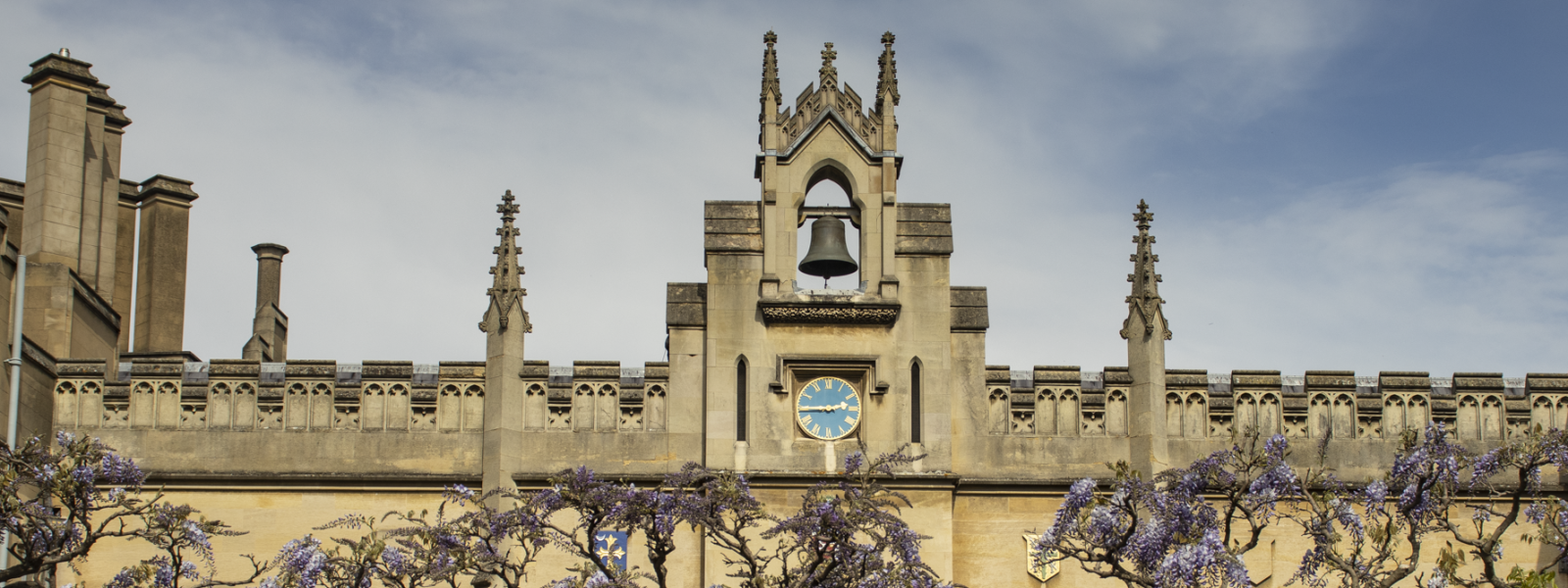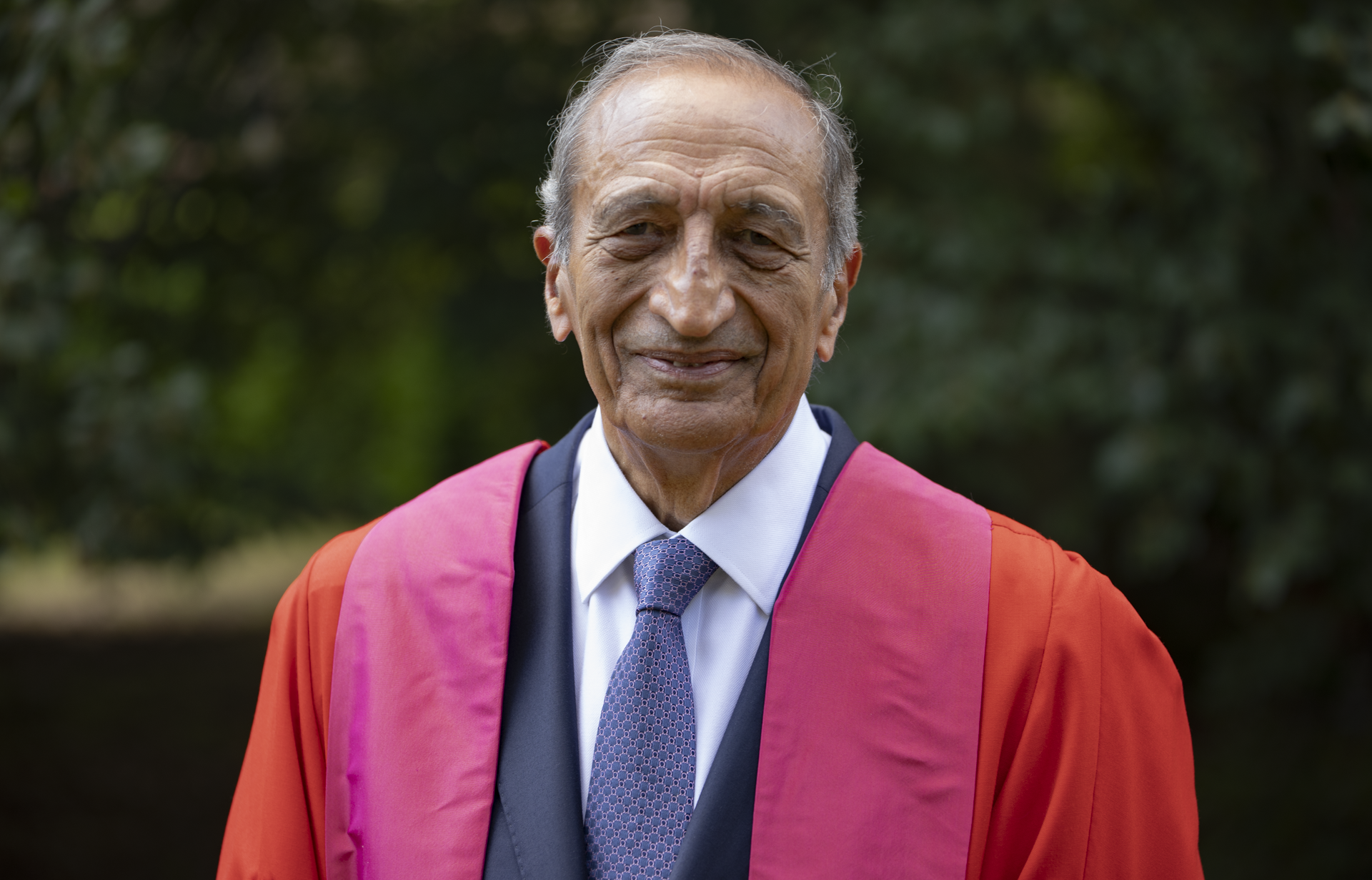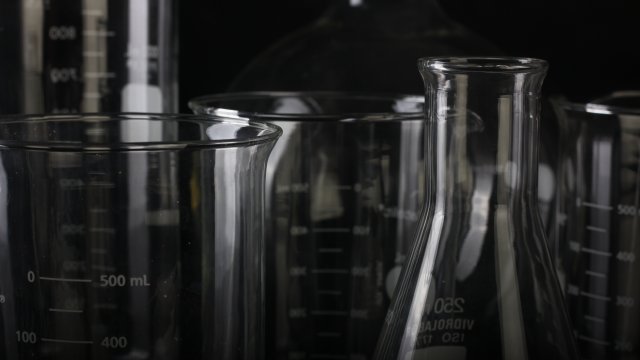Professor Sir Ravinder Maini, who with Marc Feldmann and Fionula Brennan identified a treatment for rheumatoid arthritis which has improved the lives of those suffering from a wide range of autoimmune diseases, has today been awarded an Honorary Degree by the University of Cambridge.
Professor Sir Ravinder Maini, pictured in the grounds of Sidney while attending the Honorary Degree Banquet, 21 June 2023
In a long and distinguished career, Ravinder Maini’s research has focused on the immunological mechanisms of autoimmunity, cytokines and the immunotherapy of rheumatoid arthritis. He has been elected a Fellow of the Royal Society, London; Fellow of the Academy of Medical Sciences; and International Member of the USA Academy of Sciences. He has been awarded Honorary Doctorates by the University of Glasgow and Université Paris 5 René Descartes; the Distinguished Investigator Award by the American College of Rheumatology; and Honorary Fellowships of Scientific Societies in the United Kingdom, Europe and Australia. He was awarded a knighthood for his contributions to rheumatology in 2002.
Maini and Feldmann have been jointly awarded international prizes including the Crafoord Prize (awarded by The Royal Swedish Academy of Sciences), the Albert Lasker Award for Clinical Medical Research, and the Canada Gairdner International Award.
In 2004, Maini was appointed an Honorary Fellow of Sidney.
In characteristically humble style, Maini described the news of his Honorary Degree as a “complete surprise.”
“I feel hugely honoured by the award of this Honorary Degree. I had a rather undistinguished record at Sidney as a youngster, and only developed a successful career as a clinician-scientist as a postgraduate in London, so to be honoured in this way by Cambridge, my alma mater, is a lovely recognition to cherish in my retirement.”
“It shows that if you live long enough, apparently some good things may still come your way!”
Professor Sir Ravinder Maini
Ravinder Maini was born in his maternal grandmother’s house in Ludhiana in the British Indian state of Punjab in 1937, but grew up in Africa, first in Kenya, then Uganda.
He was home taught until the age of 10. Having decided that he wanted to become a surgeon, at 15 he started to spend his weekends at the local hospital – “There was a surgeon - a very dynamic, inspirational figure - who just allowed me to follow him around.”
Maini came to London to sit his A levels: “My uncle had been an undergraduate at Sidney Sussex, studying economics just after the war, and I remember going up for interview on a beautiful summer's day.”
Maini matriculated in 1956. Used to learning by rote, he found his time at Sidney challenging: “In my first year doing medical sciences, I was completely out of my depth. I really didn't have a clue about what was going on. But the tutor system was good, and it kind of rescued me.”
He encountered a system “where logic and science had to mean something”: “It was in fact a very good education, although at the time I wondered what I was doing studying natural science when all I wished for was to become a doctor.
“My supervisors were, I would say, very kind. They knew I lacked a foundation in science, and they helped me. I didn't know how to look up an original paper, or how to use the library. That was a big step for me, to go beyond my textbooks and look for original papers, to try and understand what my subject was really about.”
After graduating, Maini moved to Guy’s Hospital in London. In his final year at Guy’s, Maini studied cardiology. At a time of rapid advances in the field of heart transplantation, his interest in the area of histocompatibility - why tissues are rejected – led him to immunology.
Maini went to work for the immunologist Dr D.C. Dumonde, at St. Mary’s in London. When Dumonde was appointed Head of Immunology of the Kennedy Institute of Rheumatology, Maini followed him.
In 1984, Maini began a collaboration with the Australian immunologist Marc Feldman. Both were fascinated by the role of cytokines, the “messenger molecules” responsible for intercellular communication.
Advances in DNA technology meant they could test the properties of different 'cytokines’ in test tube cultures and animal model systems: “Auto-antibodies and cellular immune reactions were recognised to be an important part of the pathogenesis of rheumatoid arthritis – this research allowed us to ask the question whether these were involved in any way in the disease.”
Maini, Feldmann, Fionula Brennan, Fellows and colleagues identified TNF alpha as a key cytokine in the process of rheumatoid arthritis in laboratory studies in 1988 to 1990. From 1991-1998, they led clinical and laboratory studies that demonstrated the efficacy of anti-TNF antibody, especially when used as co-therapy with methotrexate, in rheumatoid arthritis, and in exploring molecular mechanisms of its action.
This breakthrough led to TNF-blockers being used as the primary treatment of the disease, which affects an estimated 14 million people worldwide.
Subsequent research has seen TNF blockers used to improve the lives of those suffering from Crohn’s disease, ankylosing spondylitis, psoriatic arthritis and psoriasis.
Maini was appointed Director of The Kennedy Institute in 1990. Despite being officially retired, he continues to publish research and support the development of the many distinguished investigators he has worked with.
You can read an extended interview with Professor Sir Ravinder Maini, focused on his research on cytokines, and contemporary work on the causes of autoimmune disease.
If you have something that would make a good news or feature item, please email news@sid.cam.ac.uk



